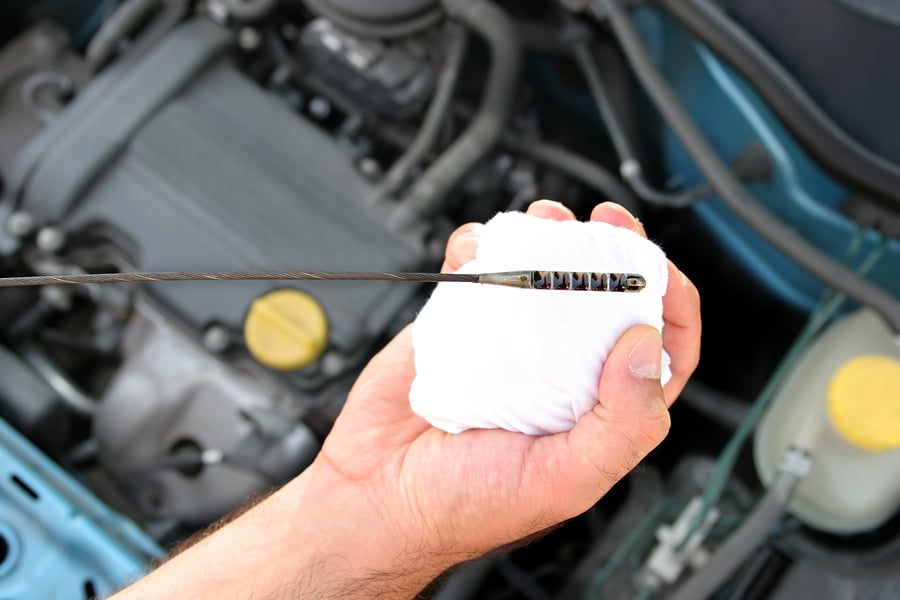It’s essential to keep an eye on your engine oil to ensure your vehicle runs smoothly and efficiently. Engine oil is vital for lubricating the moving parts within your engine, preventing friction and wear. Knowing when to change your engine oil is crucial to prevent damage and maintain the overall health of your vehicle.
Signs You Need to Change Your Vehicle’s Engine Oil
There are several indicators that can help you determine when it’s time for an oil change. Being proactive and attentive to these signs can save you from costly repairs and potential engine damage. Here are some common signs to look out for:
- Unusual Sounds From Your Engine: If you hear unfamiliar noises coming from your engine, such as knocking or grinding, it could be a sign that your engine oil needs changing.
- Dirty or Grimy Oil: Healthy engine oil should have a golden or amber color. If your oil appears dark or gritty, it’s time for a change.
- Low Oil Level: Checking your oil level regularly is essential. If you notice that the oil level is low, it’s a clear indication that your vehicle needs an oil change.
- Dashboard Warning Lights: Many modern vehicles are equipped with oil pressure warning lights. If this light illuminates, it’s a sign that your engine oil needs attention.
- Smoke From Your Exhaust: If you notice smoke coming from your exhaust, it could be due to old or inadequate engine oil.
- Abnormal Vibrations: A poorly lubricated engine can lead to abnormal vibrations or shaking while driving.
- A Burning Smell: If you detect a burning odor while driving, it could be a sign that your engine oil needs to be replaced.

Credit: www.youtube.com

Credit: www.hollenshades.com
Additional Symptoms of Low Engine Oil
It’s essential to be aware of other symptoms that could indicate your vehicle is running low on engine oil:
- Oil Pressure Warning Light: This light typically looks like an old oil lamp and only illuminates when there’s a problem with your oil. If you see this light, take your vehicle for a service appointment.
- Decreased Performance: Low engine oil can lead to decreased performance and efficiency in your vehicle.
- Strange Grinding or Knocking: Unusual sounds from your engine, such as grinding or knocking, can indicate low or degraded engine oil.
- Burning Oil Scent: If you notice a burnt oil smell inside or outside your vehicle, it’s a sign that your oil needs attention.
How to Check Your Car’s Engine Oil
Regularly checking your engine oil is a simple yet crucial task for maintaining your vehicle’s health. Here’s how you can check your car’s engine oil:
- Locate the Dipstick: The dipstick is usually brightly colored and located near the engine.
- Remove the Dipstick: Pull the dipstick out of the tube and wipe it clean with a cloth or paper towel.
- Check the Oil Level: Reinsert the dipstick fully, then pull it out again to check the oil level. The oil should be between the “minimum” and “maximum” markers on the dipstick.
- Inspect the Oil Condition: Note the color and consistency of the oil. Healthy engine oil should have a clear, golden appearance.
Frequently Asked Questions
How Do I Tell If My Car Needs Oil?
You can tell if your car needs oil if you notice unusual engine sounds, dirty oil, low oil level, dashboard warning lights, smoke from exhaust, abnormal vibrations, or a burning smell. Regularly checking the oil level and observing these signs can help you determine if your car needs an oil change.
What Are Signs Of Low Engine Oil?
Signs of low engine oil include unusual engine noises, dirty or grimy oil, low oil level, dashboard warning lights, smoke from the exhaust, abnormal vibrations, and a burning smell. If you experience any of these symptoms, it is recommended to schedule a service appointment for an oil change.
How Does A Car Feel When It Needs Oil?
When a car needs oil, you may notice louder engine noise, low oil level, dashboard warning lights, or a burning smell. If the oil looks dirty or smells burnt, it’s time for a change. Keep an eye on unusual vibrations, decreased performance, or smoke from the exhaust.
How Do You Know If Your Car Starts Running Out Of Oil?
If your car starts running out of oil, the oil pressure warning light will come on. This light looks like an old oil lamp and indicates a problem with your oil. If you see this light, take your vehicle to a service center to fix the issue.
Conclusion
Keeping an eye on your engine oil is crucial for the longevity and performance of your vehicle. By being aware of the signs and symptoms of low engine oil, you can take proactive measures to ensure your vehicle’s engine remains in optimal condition. Regularly checking and changing your engine oil according to your vehicle manufacturer’s recommendations can save you from costly repairs and maintain the overall health of your vehicle.
